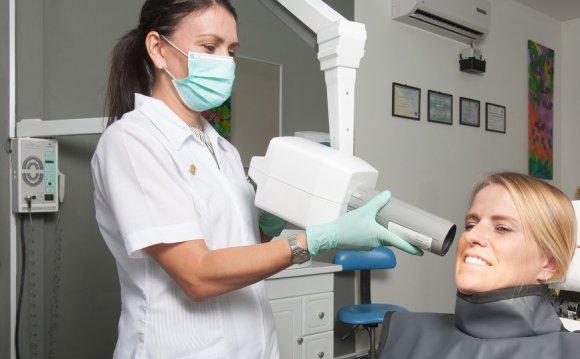
Nursing home dental care Heredia
 On a current Wednesday morning, Arthur Caplan, PhD, manager of the Division of healthcare Ethics at NYU Langone clinic's division of Population wellness, had been lecturing several global medical researchers towards ethical dilemmas in medical research raised by final year’s Ebola outbreak in western Africa.
On a current Wednesday morning, Arthur Caplan, PhD, manager of the Division of healthcare Ethics at NYU Langone clinic's division of Population wellness, had been lecturing several global medical researchers towards ethical dilemmas in medical research raised by final year’s Ebola outbreak in western Africa.
Should experimental anti-Ebola medications have to proceed through a traditional randomized, placebo-controlled test, Dr. Caplan asked? Or, given the devastation wrought by Ebola in Liberia, Sierra Leone, and Guinea, does calling for a rigorous clinical trial—rather than a more “adaptive” study design that tests two treatments against each other—deny prospective treatments to people who desperately require all of them, with regard to attaining a “gold standard” of study?
Dr. Caplan, front side. From left to correct: Fredy A. Canchihuaman from Peru; Budsaba Wiriyasirivaj from Thailand; S. Benedict Dossen from Liberia; Lu Wang from Asia; Yang Hongrong from China; Naah Tabala Felicite from Cameroon.
“If you’re perhaps not gonna provide [the treatment] away before you’re sure it is likely to work, you’re asking visitors to wait a number of years, ” stated Dr. Caplan. On top of that, he stated, there are tradeoffs in selecting not to ever conduct a randomized control test.
Dr. Caplan and lots of of their colleagues presented a two-week ethics training of kinds, included in the WIRB-Copernicus Group’s (WCG’s) Overseas Fellows system. This system trains worldwide health professionals who want to establish or enhance institutional review boards (IRBs)—sometimes referred to as analysis Ethics Committees—in their nations.
A Growing Importance Of Oversight and Training
Medical tests are more and more conducted in a growing directory of reasonable and middle-income nations in Asia, Africa, and Latin America, which are considered appealing “emerging areas.” It is considered less costly to carry out clinical tests during these countries than in created countries, and they have huge patient populations that reasonably untreated. But local residents and others are concerned that such tests are not constantly carried out with the exact same ethical criteria expected inside U.S. alongside developed countries.
 “As drug development studies are increasingly being conducted in a growing variety of nations, there was an acute shortage of well-organized local IRBs and trained experts to deliver the necessary supervision for research concerning real human topics, ” WCG Chairman and CEO Donald A. Deieso, PhD, said. “Through our system, we provide our international fellows with a deep understanding of regulations and tips, and a thorough knowledge of ideal practices in real human topic security. Once they are empowered, we expect that they will come back to their particular nations and establish top-notch, certified local IRBs."
“As drug development studies are increasingly being conducted in a growing variety of nations, there was an acute shortage of well-organized local IRBs and trained experts to deliver the necessary supervision for research concerning real human topics, ” WCG Chairman and CEO Donald A. Deieso, PhD, said. “Through our system, we provide our international fellows with a deep understanding of regulations and tips, and a thorough knowledge of ideal practices in real human topic security. Once they are empowered, we expect that they will come back to their particular nations and establish top-notch, certified local IRBs."
The issue of Ebola treatment or scientific studies are especially intense for S. Benedict Dossen, who serves as a part of University of Liberia’s Pacific Institute of Research and Evaluation IRB, additionally the government’s newly-established Liberian National Assessment and Ethics Board.
Mr. Dossen, that is from Liberia, is concerned that researches in the nation are not always done for the advantage of Liberians. “Liberia happens to be regarded as an open field for analysis, not only because of the Ebola outbreak but considering that the [Liberian municipal] War [ended], with many studies being carried out by foreign people or international groups. The possible lack of a solid neighborhood research legislation system makes the country in danger of analysis malpractices, ” he said. He commended their government for establishing a national analysis board, which he believes should really be separate and autonomous.
Dr. Caplan implies that IRBs may be involved in the form of decision-making that occurred during the Ebola outbreak. “The IRB of the next day has actually a task to relax and play in research design, ” he added.
Knowledge to hold Home
Along with training with Dr. Caplan, fellows take classes with professionals from other procedures, including law, dentistry, medical, and personal science. Trainers feature Barbara Redman, PhD, MBE; Jennifer Miller, PhD; Alison Bateman-House, PhD, MPH, MA; and Brendan Parent, JD—all of whom come in NYU Langone infirmary’s Division of health Ethics—and Ken Berkowitz, MD, FCCP, acting exec manager of this Veterans Health Administration’s National Center for Ethics in medical care and connect teacher of Medicine and Population Health at NYU Langone Medical Center.
After their a couple of weeks here, the fellows flew to another region of the country to obtain hands-on training in the offices of this west Institutional Review Board, an independent, central IRB in Washington State, which will be the main WCG organization.
The fellows desire to use whatever they figure out how to increase the power of their IRBs back, which in many cases tend to be fledgling. Today in Thailand, there is developing recognition among scientists, academic institutions, the government, and community that research should be ethically carried out, states Budsaba Wiriyasirivaj, MD, a consulting obstetrician and gynecologist and lecturer regarding faculty of medication at Vajira Hospital, at Navamindradhiraj University in Bangkok. Because of this, the Thai government quickly plans to enact a law which will set criteria for analysis.













